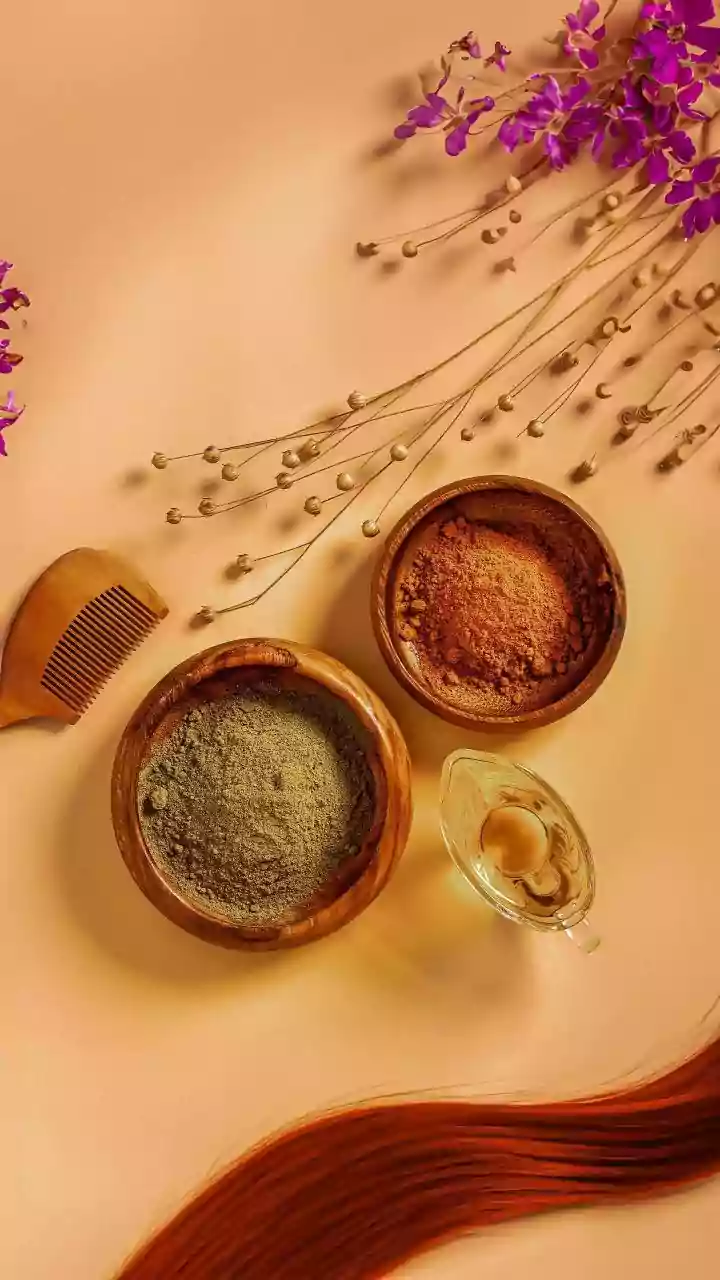Argan Oil Benefits
Argan oil, often called 'liquid gold,' is renowned for its moisturizing and conditioning properties. It's extracted from the kernels of the argan tree,
native to Morocco. Rich in vitamin E, antioxidants, and essential fatty acids, this oil combats dryness, reduces breakage, and protects against environmental damage, all crucial for hair growth. Applying argan oil regularly can improve hair elasticity, making it less prone to splitting. Its lightweight nature ensures that it doesn’t weigh hair down, and it gets easily absorbed, leaving hair with a healthy shine. Regular use can also promote scalp health, creating a favorable environment for new hair growth. Try applying a few drops to your hair after showering or using it as a pre-shampoo treatment for maximum benefits.
Coconut Oil Power
Coconut oil is a versatile oil celebrated for its ability to penetrate the hair shaft, reducing protein loss and fortifying strands. Known for its high saturated fat content, coconut oil is particularly good at deeply moisturizing hair, preventing dryness, and reducing frizz. It also contains lauric acid, which easily binds to hair proteins, adding strength and preventing damage. For hair growth, coconut oil works by nourishing the scalp, fighting dandruff, and promoting a healthy environment for hair follicles. Use it as a deep conditioning mask, applying generously from root to tip, and leaving it on for at least thirty minutes before rinsing. Regular use results in hair that is noticeably stronger, shinier, and less prone to breakage, thus facilitating overall hair growth and thickness.
Jojoba Oil Advantage
Jojoba oil is unique because its molecular structure closely resembles the natural sebum produced by the scalp, which means it gets absorbed effortlessly. This oil is a fantastic emollient, hydrating the scalp and preventing dryness, a common cause of hair breakage and stunted growth. It works by unclogging hair follicles, thus promoting new hair growth, and it helps to balance oil production, making it suitable for all hair types. Jojoba oil also contains vitamins and minerals that nourish the hair shaft, and it can add shine and manageability. You can use jojoba oil as a leave-in conditioner after washing or mix it with other oils for a customized hair treatment. Its non-greasy texture makes it ideal for daily use, leaving hair feeling soft and revitalized.
Castor Oil Benefits
Castor oil, a traditional remedy for hair growth, is thick and rich in ricinoleic acid, which helps to improve blood circulation to the scalp, thus stimulating hair follicles. This can lead to increased hair growth and thickness. Castor oil also possesses antimicrobial and antifungal properties that can combat scalp infections and improve scalp health, providing a conducive environment for hair growth. It’s effective at sealing moisture into the hair shaft, preventing dryness and breakage. When using castor oil, apply a small amount directly to the scalp and hair, massaging gently. Because of its thick consistency, it’s best used as a deep conditioning treatment, leaving it on for several hours or overnight. Regular use can lead to thicker, stronger, and healthier hair.
Almond Oil Effect
Almond oil, loaded with vitamins E, fatty acids, and proteins, is a fantastic choice for enhancing hair health and encouraging growth. It moisturizes the scalp, reducing dryness and flakiness, which can hinder hair growth. This oil is also known to strengthen hair strands, preventing breakage and split ends, which ultimately contributes to longer hair. The regular use of almond oil can improve hair's natural shine and make it more manageable. Apply almond oil to the scalp and hair, gently massaging it to stimulate blood flow. You can use it as a pre-shampoo treatment, leaving it on for about an hour before washing your hair. Over time, almond oil can lead to softer, stronger, and more resilient hair, promoting both length and thickness.
Rosemary Oil Impact
Rosemary oil is highly regarded for its ability to stimulate hair growth and combat hair loss. Scientific studies have shown that rosemary oil can be as effective as some pharmaceutical treatments for hair loss. It works by improving blood circulation to the scalp, which stimulates hair follicles, promotes new hair growth, and can help to prevent hair loss. Rosemary oil also possesses anti-inflammatory properties that can soothe the scalp and reduce irritation. When using rosemary oil, dilute it with a carrier oil like jojoba or almond oil before applying it to the scalp. Massage gently for several minutes and leave it on for about 30 minutes before rinsing. Consistent use can lead to increased hair thickness, and improved hair growth. Be sure to perform a patch test before use to avoid any adverse reactions.
Tea Tree Oil's Role
Tea tree oil has powerful antifungal and antibacterial properties, which makes it ideal for treating scalp conditions such as dandruff, which can hinder hair growth. It helps to unclog hair follicles, allowing for new hair growth and reducing hair loss caused by scalp infections. When used topically, tea tree oil can stimulate the scalp and promote healthy hair growth. Always dilute tea tree oil with a carrier oil like coconut or jojoba oil to avoid scalp irritation. Apply the mixture to your scalp and massage gently. You can leave it on for about 30 minutes before washing, or add a few drops to your shampoo or conditioner. Consistent use of tea tree oil can improve scalp health, leading to stronger, healthier hair and improved growth.
Lavender Oil Benefits
Lavender oil is known for its calming properties, and it also benefits hair health. It helps to promote hair growth and can aid in preventing hair loss. Lavender oil's properties can improve blood circulation to the scalp, encouraging hair follicles to grow stronger and thicker. Its antimicrobial properties also help to keep the scalp healthy and free from infections. When using lavender oil, it’s important to dilute it with a carrier oil before use. Apply the mixture to your scalp, massaging gently to stimulate blood flow. Leave it on for about 30 minutes, or you can add a few drops to your shampoo or conditioner. Consistent application of lavender oil can result in improved hair growth, reduced hair loss, and a healthier scalp.
Peppermint Oil Uses
Peppermint oil is a stimulating oil for hair growth due to its ability to boost blood flow to the scalp. This increased circulation encourages hair follicles to receive more nutrients and oxygen, which promotes hair growth and may prevent hair loss. Peppermint oil also has a refreshing effect, which can reduce scalp irritation. Always dilute peppermint oil with a carrier oil before application to prevent scalp irritation. Massage the mixture onto your scalp, and leave it on for about 20-30 minutes. You may feel a slight tingling or cooling sensation. Regular use of peppermint oil can lead to a healthier scalp, stimulated hair growth, and overall improved hair thickness. It's a great choice for those looking to boost their hair growth naturally.
Eucalyptus Oil Benefits
Eucalyptus oil is valued for its ability to stimulate hair growth and maintain a healthy scalp environment. It can boost circulation, thereby promoting healthy hair follicles and potentially reducing hair loss. The invigorating scent also helps to relax and rejuvenate the scalp, stimulating hair growth. Eucalyptus oil contains properties that help to cleanse and clarify the scalp, removing build-up of product residue and excess oils, leading to healthier hair. Dilute eucalyptus oil with a carrier oil before applying it to your scalp. Massage gently, and leave it on for about 30 minutes before washing. Regularly using eucalyptus oil can result in thicker hair and a refreshed scalp. It is beneficial for individuals seeking to enhance hair growth and maintain optimal scalp health.



















